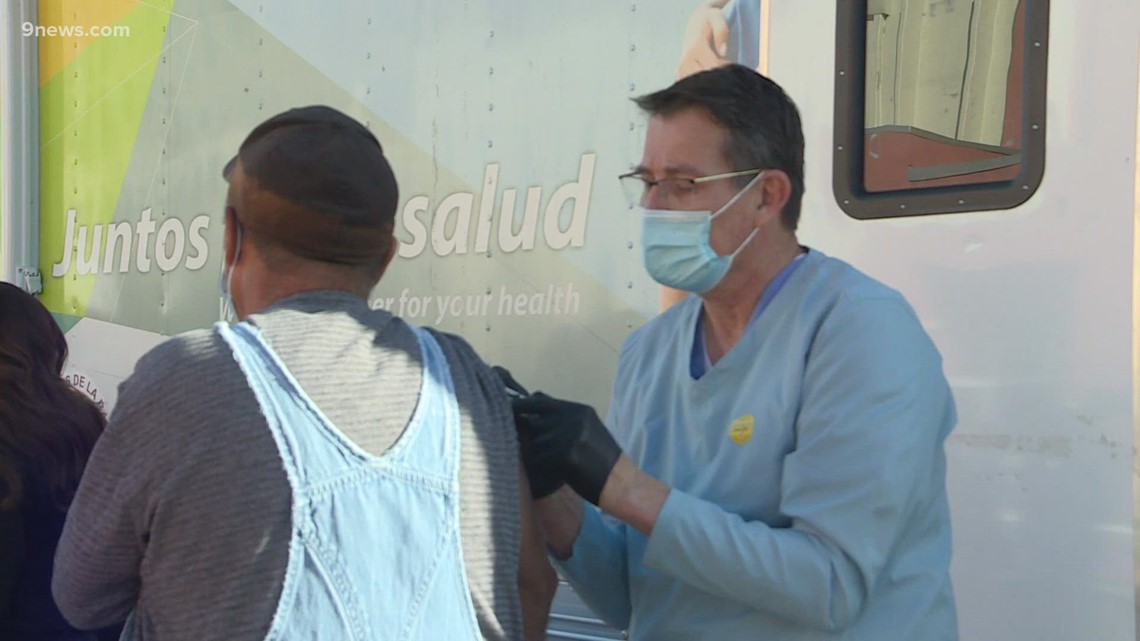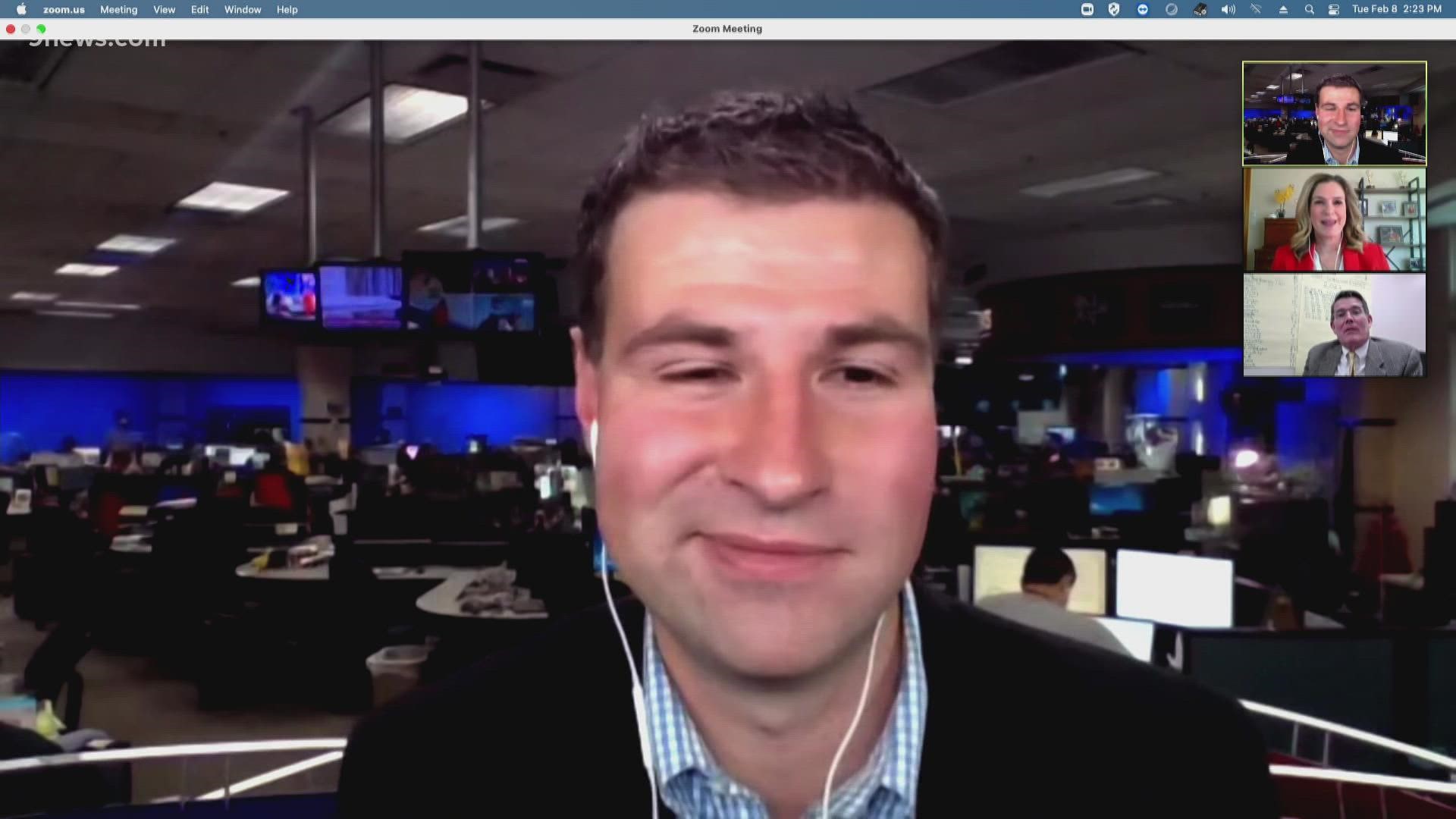DENVER — As many of Colorado's mask mandates end, experts are still asking people to wear masks. This is undoubtedly creating confusion for the residents of the Centennial State.
"On Friday of last week, they were making us go to public libraries to pick up high-efficiency N95 face masks and that we replace the common ones [masks]," said Dr. Ricardo González-Fisher with Servicios de la Raza, "and suddenly on Monday, it appears that they are lifting the mandate."
Given the conflicting information that is being received, in this week's segment, Gonzalez-Fisher clarified doubts, and CDPHE spokeswoman Vanessa Bernal also joined the panel to talk about the COVID-19 numbers and the state's vaccination efforts.
According to Gonzalez-Fisher, the pandemic caused us to live a couple of years very fast, and when it comes to public health decisions, experts have had to make decisions that are constantly changing.
This could make many people think "that we don't know what we're doing. Like we're not coming to an agreement," González-Fisher said.
But Gonzalez-Fisher says there's really no such confusion.
"We know we have a virus that spreads through the respiratory tract," Gonzalez-Fisher said. "We know that this virus has a life cycle within our population. And we know that we are getting out."
Gonzalez-Fisher added, "We are in the final part of what they called the third or fourth wave – the fourth wave actually with the omicron variant. So, as this wave is on its way out, we are being able to relax these public health mandates a little bit."
Gonzalez-Fisher reiterated that although very soon we may be able to return to a more normal life with group meetings, or being in places without masks and hanging out with friends, the virus will not go away.
"This is not that it doesn't exist, it's just that we are in a period between the end of omicron and the beginning of the next variant, that we expect will take a long time to arrive," he said.
Vanessa Bernal with the Colorado Department of Public Health and Environment (CPDHE) shared the same sentiment as González-Fisher.
"The numbers [for COVID-19] are high," she said. "There are still cases – not to the extent of record numbers like before, but that's why we can't let our guard down."
According to Bernal, the current numbers of hospitalizations in the state continue to show a higher percentage of hospitalizations related to COVID-19 in people who are not vaccinated.
"There are 1,221 new reported cases, 210 deaths among the reported cases," she said. "There are 979 people currently hospitalized with confirmed COVID-19 of which 64% of these hospitalized people are unvaccinated."
Bernal added that Colorado still has a high level of transmission of the virus.
"We have an average of 12% positivity," she said. "That's the percentage of positive tests that come out of all the tests that are done. The goal of the state, of the government of the state of Colorado, is 5%. So we are still far away."
According to Bernal, the pandemic is not over yet, and to combat it, "the best weapon we have, and we do not get tired of repeating it, is the vaccine."
The most recent numbers on the state immunization dashboard show that only 38% of Colorado's Hispanic population has been vaccinated with at least one dose of the COVID-19 vaccine. That's the lowest percentage of any demographic group in Colorado.
Servicios De La Raza, the state's largest nonprofit serving Latinos, continues to work to bring more resources and information about COVID-19 to residents of Colorado who are the most difficult to reach.
The organization offers an extended-hour clinic every Tuesday from 4 p.m. to 8 p.m. at the organization that is located at 3131 W. 14th Ave. No appointment is needed.
Servicios also offers a mobile clinic in conjunction with the Mexican Consulate in Denver known as Ventanilla de Salud. In it they have reached many regions of the state to promote vaccines.


By the end of 2021, they had administered at least 10,000 vaccinations.
González-Fisher said that for some people it was the first doses and pointed to concern about the omicron variant as a factor in greater interest in getting vaccinated.
Bernal also spoke about the state's vaccination efforts to reach Hispanic communities in Colorado.
"There is a statewide campaign in Spanish that covers radio, television, print media," she said. "Informational posters have been put up at bus stops, in billboards, on buses that go to certain housing areas with a high concentration of Hispanics. In supermarkets, in taquerias – in restaurants."
She added, "And an important point has been the clinics, and also the mobile clinics, which are in the buses. Currently there are 15 buses that provide vaccines in the state."
For more information on the CDPHE mobile vaccine clinics you can visit their website here.
SUGGESTED VIDEOS: COVID-19 Vaccine

